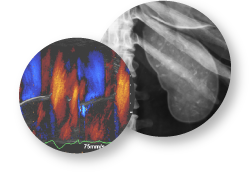News
Research results and findings based on the CRIC Study and CRIC ancillary study data are continuously disseminated through manuscripts in peer reviewed journals, newsletters for CRIC participants, abstracts and posters at scientific meetings, press releases, the CRIC Twitter feed (@CRICStudy), and other sources.
Newsletters
CRIC Scientific Discoveries
Chronic kidney disease is common in the US population, and we understand that it increases the risk of cardiovascular disease. However, risk scores have not been generated specifically for identifying CKD patients, who are most likely to develop heart disease. In this large-scale proteomics study, we measured nearly 5,000 proteins and used machine learning methods to generate and validate a 32-protein risk score. This score surpassed clinical risk models for predicting incident cardiovascular disease.
CRIC Collaborations
The CRIC Scientific and Data Coordinating Center at Penn receives data and provides ongoing support for a number of Ancillary Studies approved by the CRIC Cohort utilizing both data collected about CRIC study participants as well as their biological samples.

